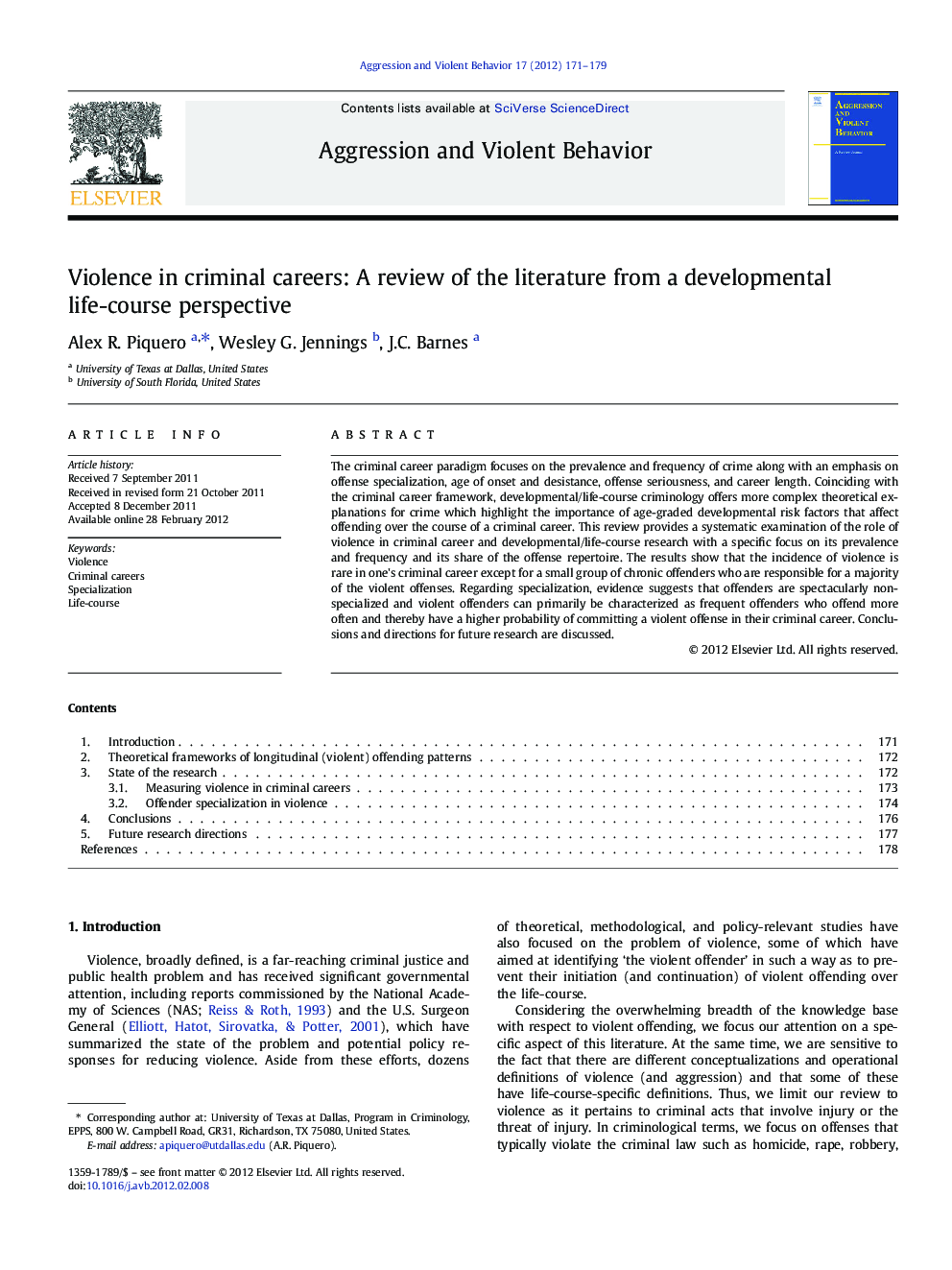| Article ID | Journal | Published Year | Pages | File Type |
|---|---|---|---|---|
| 94616 | Aggression and Violent Behavior | 2012 | 9 Pages |
The criminal career paradigm focuses on the prevalence and frequency of crime along with an emphasis on offense specialization, age of onset and desistance, offense seriousness, and career length. Coinciding with the criminal career framework, developmental/life-course criminology offers more complex theoretical explanations for crime which highlight the importance of age-graded developmental risk factors that affect offending over the course of a criminal career. This review provides a systematic examination of the role of violence in criminal career and developmental/life-course research with a specific focus on its prevalence and frequency and its share of the offense repertoire. The results show that the incidence of violence is rare in one's criminal career except for a small group of chronic offenders who are responsible for a majority of the violent offenses. Regarding specialization, evidence suggests that offenders are spectacularly non-specialized and violent offenders can primarily be characterized as frequent offenders who offend more often and thereby have a higher probability of committing a violent offense in their criminal career. Conclusions and directions for future research are discussed.
